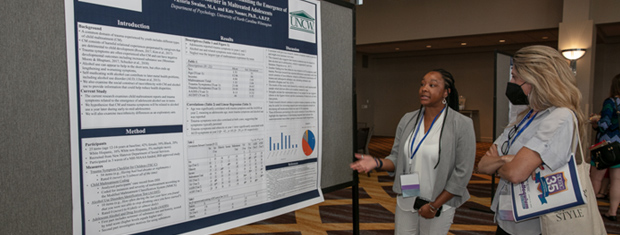




The APSAC Advisor is a peer reviewed quarterly news journal for professionals in the field of child abuse and neglect.
The APSAC Advisor provides succinct, data-based, practice-oriented articles that keep interdisciplinary professionals
informed of the latest developments in policy and practice the field of child maltreatment. It is designed to highlight
best practices in the field and publish original articles and current information about child maltreatment for professionals
from a variety of backgrounds including medicine, law, law enforcement, social work, child protective services, psychology,
public health and prevention in the U.S.
 If you wish to learn more about submitting an article to the Advisor, please click here.
If you wish to learn more about submitting an article to the Advisor, please click here.
This library contains Advisor issues dating back to the first issue in 1988. The most recent issue appears at the top.
Scroll down to select past issues by year and issue number. Once a publication appears in the box, you
can use the Enlarge button to open the document in a new window or tab (depending on how your browser is set up).
This will allow you to view the document with larger print.
To print a document, first use the Enlarge button to open the document in a new window or tab. Then use your browser's Print command.
To return here from a new tab, close the tab. To return from a new window, click your browser's Back button.
In the listing below, click on a year and issue number to see the articles in that publication.
1992 Number 4
The Question of Objectivity in the Survivor Therapist
APSAC's Advisor recently featured two articles on survivors of child abuse in the helping professions (Courtois, 1992; Sexton, 1992). Sexton noted that mental health professionals who are survivors of childhood abuse often feel compelled to hide their history in order to maintain professional credibility. It is clear that such concerns are well founded, at least in terms of society's current response to abuse and survivors.
Failure to thrive (FTT) is a life-threatening condition whose diagnosis generates considerable confusion among professionals.
The Victim Sensitive Interviewing Program: Outline and Data
This paper is a description of a project, The Victim Sensitive Interviewing Program (VSIP), started in 1986 at La Rabida Children's Hospital and Research Center, to minimize multiple interviewing of alleged child sexual abuse victims.
Pre-Trial Preparation: At the Prosecutor’s Desk
The key to winning most cases is good preparation. These tasks will help you organize yom trial file and focus on the issue and potential problems in yom case
Moving From Talk to Action: Toward Cultural Competence in the Field of Child Abuse and Neglect
So much has been said about the importance of the issue of "cultural competence," but the real challenge for the People of the Color Leadership Institute is to determine what specifically we are doing and what future actions must be taken to enhance services to children and families from diverse cultural backgrounds.
The purpose of Journal Highlights is to alert readers to current literature on child abuse. Selected articles from journals representing the variety of disciplines reflected in APSAC s membership are presented in the form of an annotated bibliography.
APSAC Advisor 5(4) - Full Issue